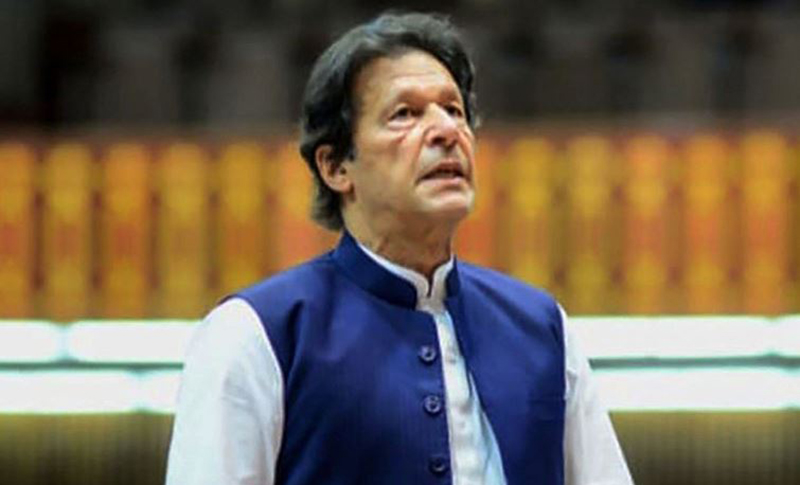Ex-Pakistan PM faces arrest: Police use water cannons, tear gas to disperse PTI workers assembled outside Imran Khan's residence

Islamabad: PTI workers pelted stones at the policemen who had assembled outside party chief Imran Khan's Lahore residence to arrest him in the Toshakana case.
According to reports, police used water cannons and tear gas against PTI workers to disperse them.
Imran Khan, who was removed from power last year after a no-confidence motion was passed against him, is facing arrest in the Toshakana case.
It is the only case in which his arrest warrants have not been suspended so far.
Footage broadcast on television showed police slowly inching toward the residence behind an armoured vehicle that was dispersing PTI supporters with a water cannon. Supporters could also be seen pelting stones at the policemen, reports Dawn News.
It is pertinent to mention that an Islamabad district and sessions court on Monday again issued arrest warrants for Imran after he persistently skipped hearings in the Toshakhana case. The court had also directed police to present the ex-premier in court by March 18, the Pakistani newspaper reported.
What is Toshakhana Case?
The reference, which alleges that Imran had not shared details of the gifts he retained from the Toshakhana (during his time as the prime minister) and proceeds from their reported sales, was filed by lawmakers from the ruling coalition last year. On October 21, the Election Commission of Pakistan (ECP) had concluded that the former premier had indeed made “false statements and incorrect declarations” regarding the gifts, reports Dawn News.
The Toshakhana is a department under the Cabinet Division that stores gifts given to rulers and government officials by heads of other governments and foreign dignitaries. According to Toshakhana rules, gifts/presents and other such materials received by persons to whom these rules apply shall be reported to the Cabinet Division, the newspaper reported.
The watchdog’s order had even said that the former Pakistan PM stood disqualified under Article 63(1)(p) of the Constitution.



